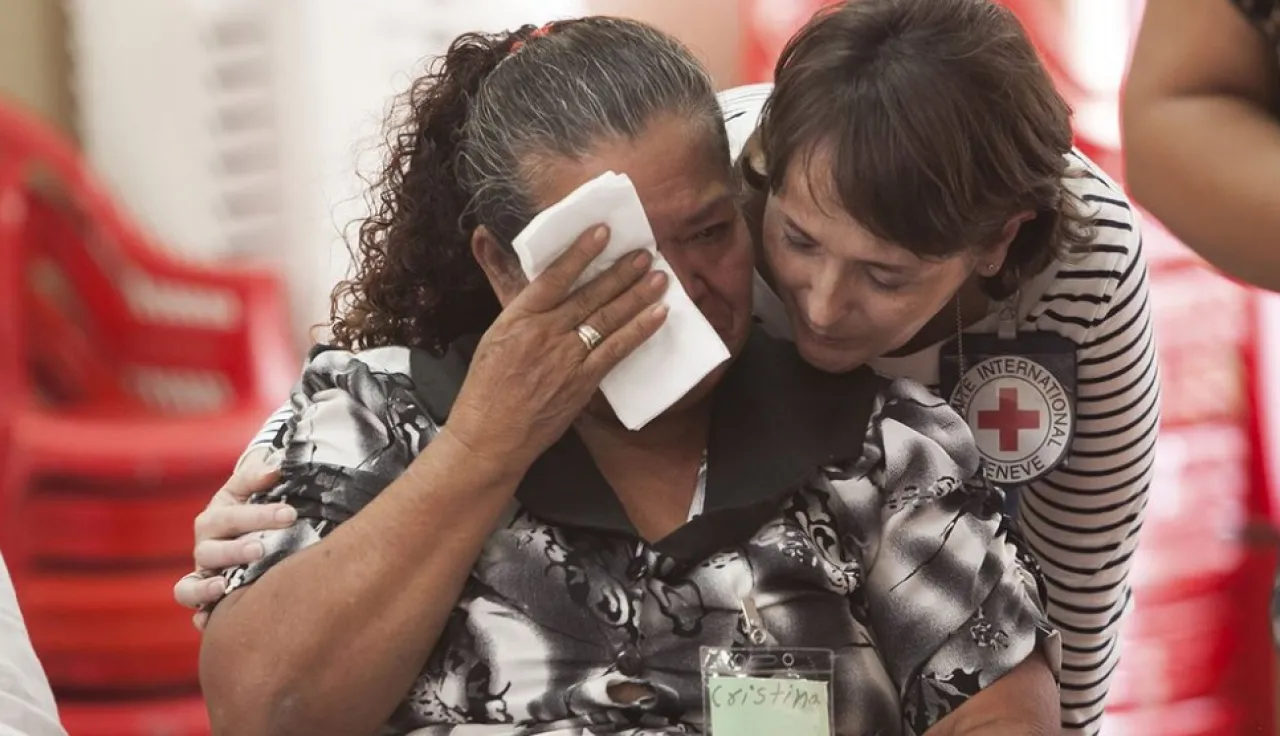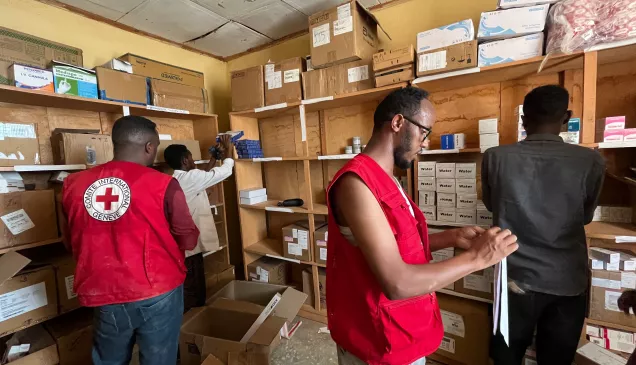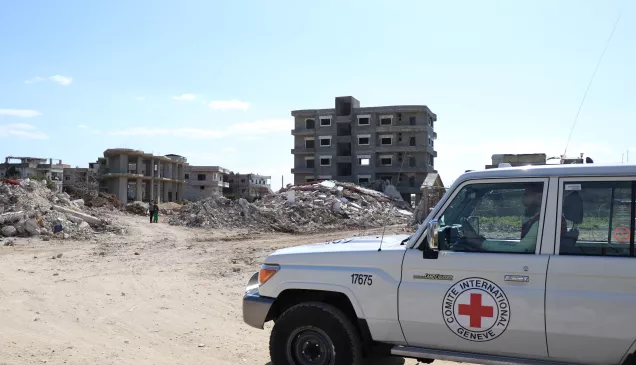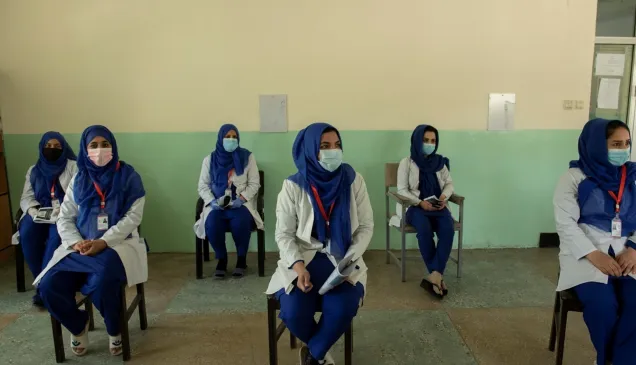Mental health needs can no longer be an after-thought in crisis

ICRC President Keynote address: International Conference on Mental Health and Psychosocial Support in Crisis Situations
Mental health services have for too long been an after-thought in situations of conflict, violence and disaster.
When traumas are invisible, they can be easily overlooked or deprioritized. Yet war and disaster have a devastating impact on the mental health and psychosocial wellbeing of millions.
New mental health problems can appear, and pre-existing conditions may resurface. For some the effects will be life-threatening.
In places affected by conflict, one in five people live with some form of mental health condition. That's three times more than the general population worldwide.
Figures like these give us an idea of the scale of the issue, but during this Summit, I also encourage you to consider the individuals behind these numbers – the people who ICRC teams regularly meet, like:
Those living through sustained bombardment and shelling;
The women, men and children raped, and ostracized by their communities;
The humanitarian workers coming under fire or facing the strain of enormous needs and limited resources.
Last month I was in Nigeria and saw the impacts of a ten-year-old conflict which has torn apart tens of thousands of families. Parents spoke of their deep anguish of not knowing what had happened to their children – they had been separated while fleeing attacks, others were abducted or detained. Without answers their trauma will remain an open wound.
It is vital that we listen carefully to people's experiences, and I welcome the upcoming panel discussion where we will hear more in-depth experiences. Despite the progress that has been made, we know the silencing effect of stigma and we need to create the right environments where people can tell their stories and be their own advocates.
While the circumstances that people face during war and disaster may seem extreme, we also know that the right intervention at the right time can make the difference for the vast majority of people. It can allow people's participation in social and community life, into employment and a path to self-reliance. And it can prevent trauma from spreading across generations.
Both in countries at war or at peace, mental health is a global issue and enormous efforts are being made by organisations around the globe. If we harness this vast collective experience, real change is possible for people around the world.
The ICRC, with the Red Cross and Red Crescent Movement, has a growing body of evidence of good practice, built on our close proximity to people affected.
We provide a broad response in crisis situations, from psychosocial support, psychological and specialized mental health support, and we rely on the local presence and the principled humanitarian action of the Movement to reach those in need, including those particularly vulnerable in non-government held areas.
We know there is no one-size answer for all. Responses must be specific to people's circumstances, strengths and abilities. For instance, children, the elderly, survivors of sexual violence or torture require specific responses. Long-term medical and health services are often required to ensure a continuum of care through cycles of conflict, instability and more peaceful periods.
We need the right workforce to support this approach. We are acutely aware of matching the appropriate professional to people's needs when it comes to physical health: you wouldn't send an eye specialist to provide physiotherapy, nor would you send a first aider to perform a surgery. For mental health conditions too, the right workforce is critical.
Quality mental health care requires specialized mental health professionals; as well as local health and community groups that provide frontline community-based support.
It is vital that we strengthen the local workforce: for example the ICRC is contributing to a workforce pipeline by training local psychologists and other mental health professionals, in Syria, Azerbaijan among other places.
Collectively though, there is more to be done.
We need to scale up early action; we must address endemic stigma and discrimination; we need long-term investment, both funding and training, to support national health and emergency response systems; and we need to support for the mental health and psychosocial wellbeing of volunteers and staff who are responding to humanitarian needs.
In December, at the International Conference of the Red Cross and Red Crescent we will table a resolution on mental health and psychosocial support to ensure this life saving support is integrated into all humanitarian responses.
We are calling for States to champion this resolution and I ask you to join us by making your own commitments in line with these calls to action.
This is a moment for urgent action: People in crisis can't wait any longer. I encourage you to build on the momentum, to make strong commitments, and to partner with others so that sum of these efforts results in a greater impact for people in need.
Address given by Peter Maurer, ICRC President, International Conference on Mental Health and Psychosocial Support in Crisis Situations, 7 October 2019, Amsterdam.



